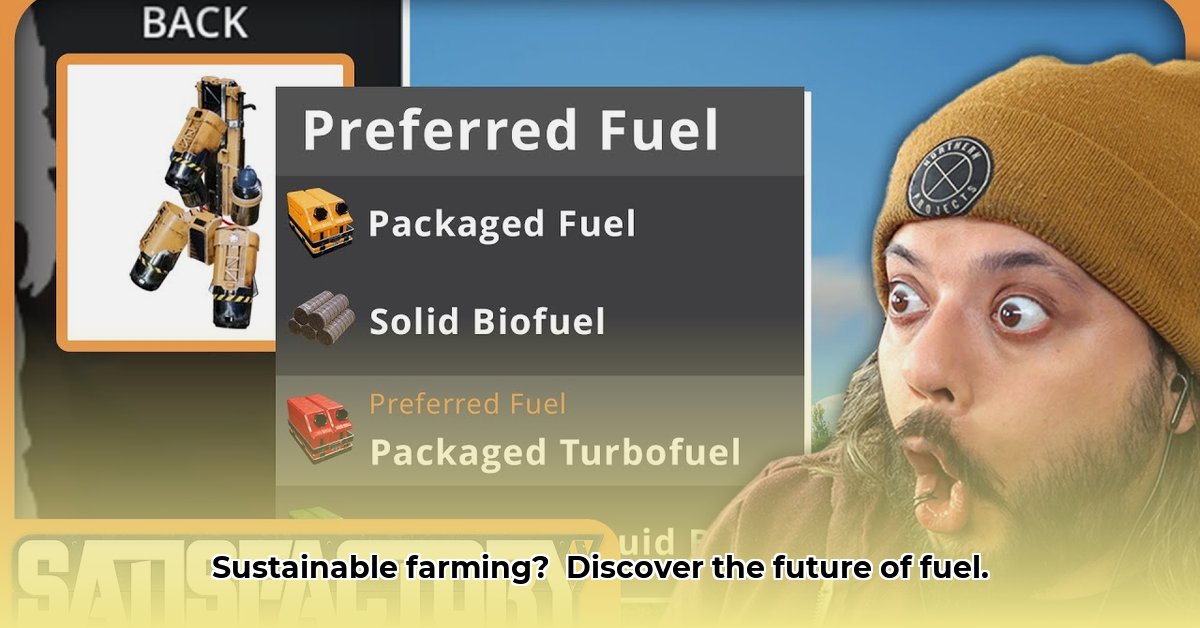
Farming's future hinges on cleaner tractor fuel. While biofuels offered initial hope, superior alternatives are emerging. This article explores promising options—practical solutions beneficial for both the environment and your farm's profitability. We'll delve into their mechanisms, advantages, disadvantages, and most importantly, practical implementation steps for your farm. Consider this your guide to a more sustainable and efficient agricultural operation.
Satisfactory Alternatives to Biofuel for Tractors
Transitioning your tractor fuel away from biofuels is a significant decision impacting your farm's finances and environmental footprint. Let's examine compelling alternatives and determine the optimal choice for your operation.
Electric Tractors: A Clean Energy Solution?
Electric tractors are gaining traction, boasting quiet operation, zero tailpipe emissions, and reduced maintenance. Advances in battery technology are extending runtimes and accelerating charging. However, the high initial cost remains a significant barrier for many farmers. Furthermore, limited range (range anxiety) and the need for widespread rural charging infrastructure pose challenges, particularly for large farms with extensive acreage. Despite these limitations, the long-term environmental advantages are undeniable.
Hydrogen Fuel Cells: A Clean Powerhouse?
Hydrogen fuel cells offer another appealing prospect. They deliver comparable power to diesel engines while producing only water as a byproduct—remarkably clean! Refueling is faster than charging electric tractors. Nevertheless, producing hydrogen sustainably remains a hurdle, requiring cleaner production methods to avoid offsetting environmental gains. The current lack of widespread hydrogen distribution infrastructure also presents a significant obstacle. Despite these early challenges, the potential for clean, powerful hydrogen-fueled tractors is substantial, with ongoing research aiming to improve practicality.
Biogas and Biofuel 2.0: Refining the Originals
Existing biofuels like biodiesel are continuously being improved. Biogas, produced from farm waste, is particularly attractive, creating a closed-loop system where waste powers equipment. However, scaling biogas production to fuel all tractors necessitates substantial investment in new infrastructure. While biogas possesses immense potential, its widespread adoption requires further development.
Hybrid Tractors: Bridging the Gap
Hybrid tractors offer a compromise, combining electric motors with traditional engines. This approach leverages the instant power of internal combustion engines with the fuel efficiency of electric power. This provides a more manageable transition for farmers hesitant to fully switch to electric or alternative fuels. However, the higher initial cost remains a factor.
Choosing Your Fuel Future: A Comparative Analysis
Selecting the right alternative fuel depends on various factors: farm size, energy demands, budget, and existing infrastructure. The following table provides a concise comparison:
| Fuel Type | Advantages | Disadvantages | Best Suited For |
|---|---|---|---|
| Electric | Zero emissions, quiet operation, low maintenance | High initial cost, limited range, charging infrastructure needed | Smaller farms, specific tasks, farms near charging infrastructure |
| Hydrogen Fuel Cell | High power, fast refueling, very low emissions | High production cost of hydrogen, limited infrastructure | Large farms, long operational times, once hydrogen distribution improves |
| Biogas/Improved Biofuels | Reduced fossil fuel dependence, uses farm waste, relatively low emissions | High upfront infrastructure costs, technical challenges in production and distribution | Medium-sized farms, farmers committed to sustainable practices |
| Hybrid | Increased fuel efficiency, reduced emissions compared to standard diesel, relatively low maintenance | Higher initial cost than traditional engines | Most farm sizes, those wanting a gradual transition |
Isn't it crucial to understand the long-term cost implications of each fuel type, considering factors like maintenance and energy prices? A thorough cost-benefit analysis is vital before making a decision.
Making the Switch: A Practical Guide
Transitioning to a sustainable fuel source requires a structured approach:
- Comprehensive Assessment: Accurately assess your farm's energy consumption and tractor requirements. Avoid underestimation or overestimation.
- Thorough Research: Investigate available fuel options and technologies tailored to your farm's profile.
- Financial Planning: Explore government grants, subsidies, and other financial assistance programs promoting sustainable agriculture. Are there untapped funding sources you could access?
- Strategic Partnerships: Collaborate with agricultural equipment suppliers, renewable energy specialists, or businesses specializing in sustainable agricultural practices. They may provide valuable expertise or financing solutions.
- Infrastructure Development: If selecting electric or hydrogen, plan for charging stations or refueling capabilities.
Choosing the optimal biofuel alternative isn't a one-size-fits-all solution. It requires careful consideration of your farm's specific circumstances. Sustainable farming necessitates careful planning, technological innovation, and a proactive approach to adopting new methods. This is an ongoing process, not a single destination.
Key Takeaways:
- Several viable biofuel alternatives offer substantial environmental and economic benefits.
- The optimal choice depends heavily on individual farm characteristics and resources.
- A phased approach, incorporating thorough research and financial planning, can facilitate a successful transition.